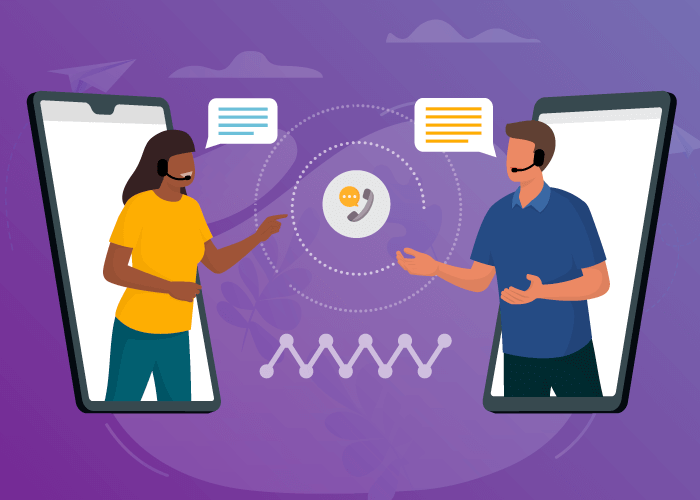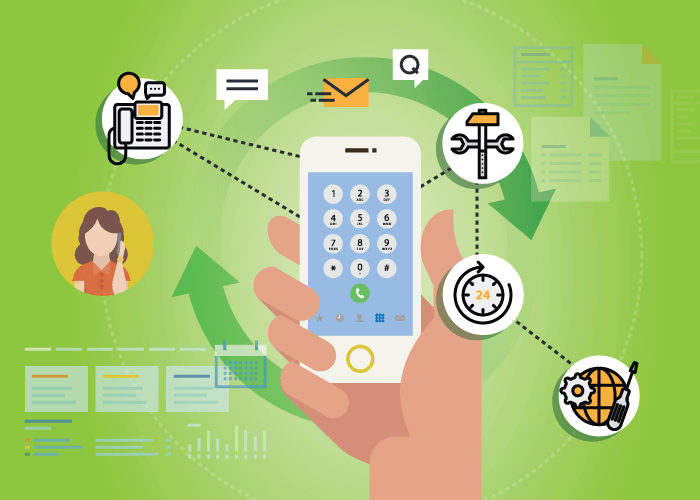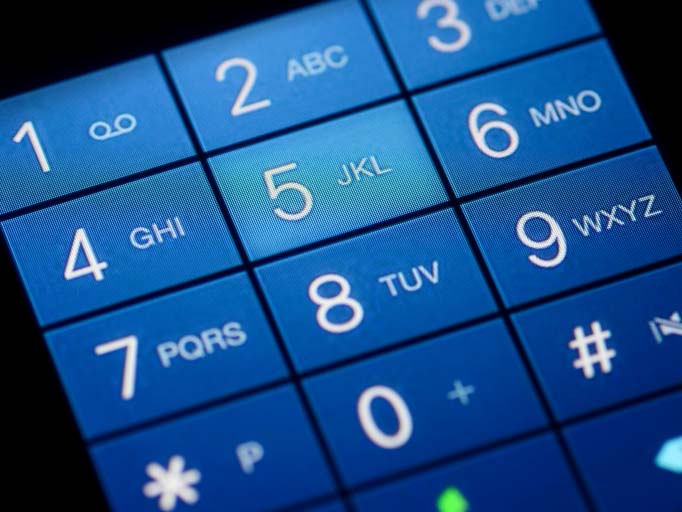AT&T’s Device Support Tutorials
Access the Call Forwarding Device Support tutorials website to learn how to turn on call forwarding with AT&T. The following process shows how this is accomplished.
- Go to “https://www.att.com/device-support/selector/.” This site lists the brands of cell phones and tablets.
- Then, select the device manufacturer.
- Select the device model. If the device is not found, select Load More Devices and then select the device.
- Under Search device support, type call forwarding. If that does not get the tutorial, go to Additional Support.
- Select Learn How to Use.
- Select Calling.
- Select Call Forwarding.
Setting Up Call Forwarding on Different Cell Phones
The following sections give the AT&T call forwarding tutorial steps for a variety of popular cell phones and softphones. This is just a sampling of the available tutorials. Follow the above procedure to find a tutorial for a specific phone not shown here. Note that there is not a tutorial for the Google Pixel phones.
AT&T Tutorial for Samsung Galaxy 8
- TURN ON CALL FORWARDING: Select the Phone app from the home screen.
- Select the Menu icon and then select Settings.
- Select More settings.
- Select Call forwarding.
- Select Always forward.
- Enter the desired Forwarding number and then select TURN ON.
- When call forwarding is turned on, the Call forwarding icon will be displayed in the Notification bar.
- TURN OFF CALL FORWARDING: Select Always forward from the Call forwarding settings menu.
- Select TURN OFF.
Note: To change the call forwarding number, edit the number, then select UPDATE.
AT&T Tutorial for Apple iPhone 8 & 8 Plus
- To set up Call forwarding on the device, from the home screen select the Settings app.
- Scroll to and select Phone.
- Select Call Forwarding.
- Select the Call Forwarding switch to activate Call Forwarding.
Note: You must be in range of the cellular network when you set an iPhone to forward calls, or calls will not be forwarded. - Enter the desired forwarding number.
- Select Back to return to the Call Forwarding screen when finished.
- When Call Forwarding is active, the Call Forwarding icon will appear in the Status Bar.
- To change the Call Forwarding number, from the Call Forwarding screen select Forward To.
- Enter the new desired forwarding number and then select Back.To turn off Call Forwarding, from the Call Forwarding screen swipe the
- Call Forwarding switch to off.
AT&T Tutorial for LG V30
- TURN ON CALL FORWARDING: From the home screen, select the Phone App. Select the Menu icon, then select Call Settings.
- Select More.
- Scroll to and select Additional Settings.
- Select Call Forwarding.
- Select Always Forward.
- Enter the desired forwarding number and then select TURN ON.
- When call forwarding is turned on, the Call Forwarding icon will be displayed in the Notification Bar.
- TURN OFF CALL FORWARDING: From the Call forwarding screen, select Always Forward then select TURN OFF.
Note: To change the call forwarding number, edit the number as desired then select UPDATE.
AT&T Tutorial for Huawei Ascend XT2 (H1711)
- TURN CALL FORWARDING ON: From the home screen, select the Dialer app. Select the Menu icon, then select Settings.
- Select Call Forwarding.
- Select Always forward. Enter the desired forwarding number and then select ENABLE.
- When call forwarding is turned on, the Call Forwarding icon will be displayed in the Notification bar.
- TURN CALL FORWARDING OFF: From the Call Forwarding screen, select Always Forward then select DISABLE.
Note: To change the call forwarding number, edit the number then select CHANGE. - AT&T Tutorial for Motorola Moto Z2 Force Edition (XT1789)
- TURN CALL FORWARDING ON: From the home screen, select the Phone App. Select the Menu icon, then select Settings.
- Select Calls.
- Select Call Forwarding.
- Select Always Forward.
- Enter the desired forwarding number and then select TURN ON.
Note: To change the call forwarding number, edit the number then select UPDATE. - When call forwarding is turned on, the Call forwarding icon will be displayed in the Notification Bar.
- TURN CALL FORWARDING OFF: From the Call Forwarding settings screen, select Always forward then select TURN OFF.
AT&T Tutorial for Alcatel ONETOUCH ALLURA (5056O)
- To forward all calls to a different number, from the Phone App, tap the Menu icon.
- Tap Settings.
- Tap Call Settings.
- Tap Call Forwarding.
- Tap Always Forward.
- Enter the Desired Forwarding Number.
- Tap ENABLE.
- When call forwarding is turned on, the Call Forwarding icon will be displayed in the notification bar.
- To turn call forwarding off, tap Always Forward.
- Tap DISABLE.
AT&T Tutorial for ZTE Maven 2 (Z831)
- TURN ON CALL FORWARDING: From the home screen, select the Phone App. Select the Menu icon and then select Settings.
- Select Call Settings and then select Call Forwarding.
- Select Call Forward-Unconditional. Enter the desired Forwarding Number and then select TURN ON.
- When call forwarding is turned on, the Call Forwarding icon will be displayed in the Notification Bar.
- TURN OFF CALL FORWARDING: From the Call Forwarding settings screen, select Call Forward-Unconditional then select TURN OFF.
Note: To edit the call forwarding number, select Call Forward-Unconditional. Edit the number as desired, then select UPDATE.
AT&T Tutorial for AT&T Fusion 3 (Y536A1)
- From the home screen, tap Dialer.
- Tap the Menu icon.
- Tap Call Settings.
- Tap Call Forwarding.
- Tap Always Forward.
- Tap the Number Field to edit the number to which calls will be forwarded.
- Tap Enable.
- Call Forwarding is now enabled. While call forwarding is active, the Call Forwarding icon will be displayed in the Notifications Bar.
- To disable Call Forwarding, tap Always Forward.
- Tap Disable.
AT&T Tutorial for Sony Ericsson Xperia PLAY 4G (R800at)
- From the home screen, press the Menu key and tap Settings.
- Tap Call Settings.
- Tap Call Forwarding.
- Tap to select the desired forwarding option. To forward all calls, tap Always Forward.
- Enter the desired forwarding number and then tap Enable.
NOTE: Follow the above steps to return and Disable Call Forwarding or Update (Change) the forwarding number. - AT&T Tutorial for BlackBerry KEYone (BBB100-1)
- TURN CALL FORWARDING ON: From the home screen, select the Phone App. Select the Menu icon, then select Settings.
- Select Calls.
- Select Call Forwarding and then select Voice.
- Select Always Forward.
- Enter the desired forwarding number and then select TURN ON.
- When call forwarding is turned on, the Call Forwarding icon will be displayed in the Notification Bar.
- TURN CALL FORWARDING OFF: From the Call Forwarding settings screen, select Always Forward and then select TURN OFF.
Note: To change the call forwarding number, edit the number and then select UPDATE.
Related: 5 Ways Call Forwarding and Automation Can Improve Your Phone System






